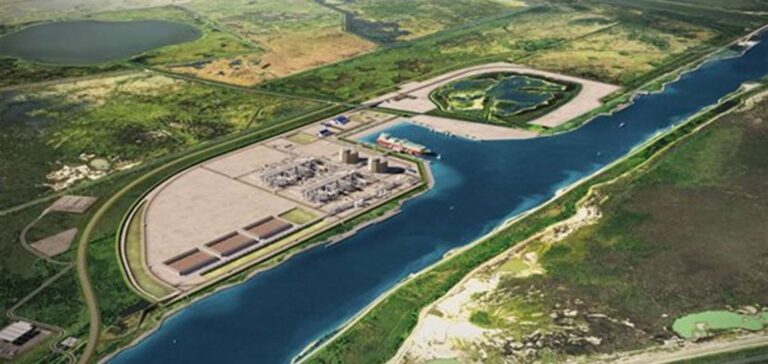Sempra Infrastructure, a subsidiary of U.S.-based Sempra, announced it has received an export authorisation from the United States Department of Energy (DOE) for its Port Arthur LNG Phase 2 project. This approval allows for the export of up to 13.5 million tonnes per annum (Mtpa) of liquefied natural gas (LNG) to countries that do not have a free trade agreement with the United States.
The regulatory permit was granted following the completion of the DOE’s latest public interest study. It is the first permit of its kind issued since the DOE updated its evaluation criteria. The authorisation marks a significant regulatory milestone in the development of the Texas-based project. Phase 2 will add to the existing infrastructure under construction in Phase 1, increasing the facility’s total liquefaction capacity to around 26 Mtpa.
Capacity doubled at the Texas site
Port Arthur LNG Phase 2 involves the construction of two additional liquefaction trains. These would complement the two trains currently being built under Phase 1, with commercial operations scheduled for 2027 and 2028 respectively. The terminal also includes two LNG storage tanks and supporting infrastructure.
The Federal Energy Regulatory Commission (FERC) had already granted regulatory approval for the project in September 2023. Phase 2 is currently under active development and marketing. According to Sempra Infrastructure, the project could enhance the United States’ position in the global LNG market.
Commercial agreements and construction awarded to Bechtel
In June 2024, Sempra Infrastructure signed a non-binding heads of agreement with a subsidiary of Aramco. The agreement contemplates both a long-term LNG offtake deal and an equity investment in the Phase 2 project. One month later, the company awarded a fixed-price engineering, procurement and construction (EPC) contract to Bechtel, a U.S.-based engineering group.
The finalisation of the project remains subject to several factors, including the conclusion of definitive commercial agreements, securing all required permits, obtaining financing and making a final investment decision. The company noted that further project phases are also under consideration, although no timeline has been disclosed.
“The project can contribute to strengthening the United States’ position in global energy markets and supporting national trade objectives,” said Justin Bird, Chief Executive Officer of Sempra Infrastructure, in a statement issued on May 29.






















